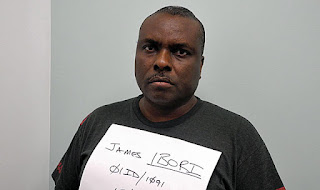"Fuelling Poverty" examines the mismanagement of Nigeria's oil wealth in the context of protests against fuel subsidy suspensions in 2012.
Produced in partnership with Open Society Initiative for West Africa (OSIWA), filmmaker Ishaya Bako told Media Rights Agenda (MRA) that the film examines "real issues, on everyday life."
Issues, it seems, that are too real for the National Film and Video Censors Board (NFVCB) to want to share. In a letter dated 8 April 2013, the NFVCB states that "Fuelling Poverty" is not permitted to be distributed, aired or exhibited, due to contents that "are highly provocative and likely to incite or encourage public disorder and undermine national security", according to MRA.
The film was released in November 2012, but was only banned when Bako submitted a request to show the film publically, the Associated Press reported.
In NFVCB's letter to Bako, the young filmmaker was warned that "all relevant national security agencies are on the alert" to ensure that he does not exhibit or distribute the film, said the Committee to Protect Journalists (CPJ).
"Instead of banning the documentary 'Fuelling Poverty,' authorities should look into the important questions it raises about corruption and impunity in the country's oil sector and at the highest levels of government," said CPJ Africa Advocacy Coordinator Mohamed Keita from New York. "We urge Nigeria's National Film and Video Censors Board to overturn this censorship order."
Contrary to the NFVCB's intentions, however, the ban has only increased the popularity of the documentary. News reports cited by CPJ says that activists have been sharing the film on social media since the ban was issued; as of 24 April the video has over 57, 000 views on YouTube.
The film has also gained international recognition. CPJ notes that "Fuelling Poverty" was screened at the 20th New York African Film Festival this month. It also recently won "Best Documentary" at the 2013 African Movie Academy Awards.
Media Rights Agenda is still seeking to understand the reasoning behind the ban.
On 18 April, the group submitted a Freedom of Information request to the director-general of the NFVCB, asking for detailed information about the decision-making process that led to the ban.
Bako himself is also considering appealing the board's decision, says CPJ.

